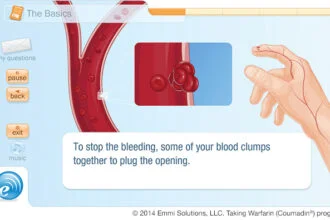 Being ICD-10 ready within your organization is great, but it is not the only thing you need to worry about. It’s imperative that your vendors are also ICD-10 ready.
Being ICD-10 ready within your organization is great, but it is not the only thing you need to worry about. It’s imperative that your vendors are also ICD-10 ready.
 Being ICD-10 ready within your organization is great, but it is not the only thing you need to worry about. It’s imperative that your vendors are also ICD-10 ready. While more than likely, your EHR vendors are prepared with the new codes, it is important that you know that your billing company, clearing houses, and insurance carriers, among other vendors, are also ready.
Being ICD-10 ready within your organization is great, but it is not the only thing you need to worry about. It’s imperative that your vendors are also ICD-10 ready. While more than likely, your EHR vendors are prepared with the new codes, it is important that you know that your billing company, clearing houses, and insurance carriers, among other vendors, are also ready.
According to the Workgroup for Electronic Data Interchange’s ICD-10 survey, only 1/3 of vendors are already ready for the ICD-10 changes. The other 2/3 are not yet capable of ICD-10 processing, and this keeps health organizations from being able to complete testing. Of that 2/3, 60% said they would be ready sometime in 2014. That still leaves 27% of overall vendors that responded to the survey that are not ready and will not be ready.
Even if it is not your fault, if your vendor is the reason you can not be compliant, you will face the consequences. If you want to ensure that your vendors are ready, you will need to contact your vendors and and make sure you’re asking the right questions.
The American Medical Association (AMA) suggests the following questions to ask your vendor:
- Do you need to do any updates to my system, and if so, is there a charge?
If the system is too old, it may no longer be supported. Always confirm costs with the vendor. If it is necessary for your vendor to upgrade your hardware to be able to install the updates, there may be costs involved.
- How long will my system be down and when will the updates be installed?
It is important to know when you will be scheduled for updates, as you are not the only customer your vendor will need to update. You will need to be prepared to know how you will continue normal operations while the system is down.
- Will my practice management system support entering the ICD-10 codes and then transmitting the code to my billing vendor, clearinghouse, and/or payer?
You will want to confirm that your system will support entry of the ICD-10 codes and transmission of the codes. If your system will not support this, you will need to work with the organization(s) you are transmitting the data to, and determine how you will send the ICD-10 codes to them. Your billing vendor or clearinghouse will be unable to convert an ICD-9 code to an ICD-10 code for you. You will have to be able to send the ICD-10 code for the claim and other transactions.
- Is there any testing you will do after the updates are complete?
You will want to complete internal testing of your systems to make sure that you can enter and generate ICD-10 codes when appropriate. Your vendor may do this when they install the updates, but you will need to confirm this with them.
- What services or products are you providing to support ICD-10?
There may be additional services or products your vendor has available to support ICD-10 coding. While the services or products may add additional costs to your system, they may support easier and more efficient coding.
Image courtesy of: winnond/ Freedigitalphotos.net![]()






